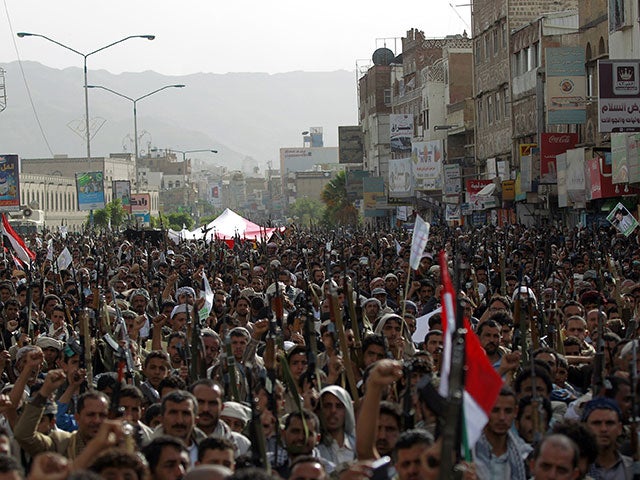Yemen car bombs: Isis claims responsibility
It has been reported that at least 50 people have been killed or injured

Your support helps us to tell the story
From reproductive rights to climate change to Big Tech, The Independent is on the ground when the story is developing. Whether it's investigating the financials of Elon Musk's pro-Trump PAC or producing our latest documentary, 'The A Word', which shines a light on the American women fighting for reproductive rights, we know how important it is to parse out the facts from the messaging.
At such a critical moment in US history, we need reporters on the ground. Your donation allows us to keep sending journalists to speak to both sides of the story.
The Independent is trusted by Americans across the entire political spectrum. And unlike many other quality news outlets, we choose not to lock Americans out of our reporting and analysis with paywalls. We believe quality journalism should be available to everyone, paid for by those who can afford it.
Your support makes all the difference.At least 50 people have been killed or injured after a series of car bombs exploded in Yemen.
The bombs went off yesterday near mosques and the Houthi group’s headquarters in the city of Sanaa, Reuters reported.
Isis claimed responsibility for the four bombs, calling the act “revenge” in a statement published online.
The group, also known as Islamic State, said: “The soldiers of the Islamic State in Yemen, in a wave of military operations as revenge for the Muslims against the Houthi apostates, (detonated) four car bombs near the centres of Houthi apostasy.”
The BBC reported that witnesses said the bombs exploded as people arrived for evening prayers.
The attacks were thought to be carried out on the Hashush mosque, the Kibsi mosque and the al-Qubah al-Khadra mosque.
Ali, a man in his 70s, told Reuters there were “wounded people” everywhere.
“The explosion was so loud I thought it was caused by an air strike. I returned and found cars burning, people screaming and wounded people all over,” he said.
The Houthis gained control of Sanaa in September, forcing President Abd-Rabbu Mansour Hadi and his government to leave.
Since the end of March, a Saudi-led coalition of Arab states has been using air strikes to target them. According to the United Nations, around 2,000 people have since been killed in the conflict.
The UN also reported that around 80 per cent of the population - 20 million people - were in need of humanitarian aid.
Delegates from Yemen are currently attending UN-sponsored peace talks in Geneva.
Yesterday however, Yemen’s Foreign Minister Reyad Yassin Abdulla said talks of a ceasefire had made “no progress”. He told Reuters the Houthi delegation had “never showed up” at the peace talks but that they were in their hotel.
Join our commenting forum
Join thought-provoking conversations, follow other Independent readers and see their replies
Comments